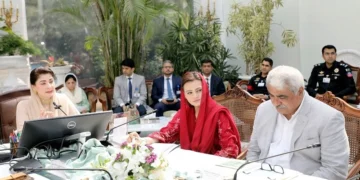Pakistan’s national carrier, PIA, is on the brink of major changes as the government moves towards privatization to mitigate staggering financial losses. With over $3.6 billion in losses accumulated over two decades, the fate of PIA hangs in the balance amidst a critical IMF bailout and intense bidding from potential buyers.
In a bid to alleviate its staggering financial burdens, Pakistan is on the verge of privatizing its national carrier, Pakistan International Airlines (PIA), following the footsteps of its neighbor, India. PIA, which has suffered losses exceeding $3.6 billion over the last two decades, has become a focal point in the government’s efforts to stabilize the economy.
The move comes amidst Pakistan’s dire need for financial support, with the International Monetary Fund (IMF) bailout looming large. As part of a larger plan to raise funds, Pakistan is considering selling off more than 80 state-owned businesses, including PIA. Bidders, including prominent figures like Pakistani billionaire Arif Habib and domestic aviation services provider Gerry’s Group, have shown interest in acquiring a majority stake in PIA.
The privatization of PIA is seen as a crucial step towards securing additional funding from the IMF. Reports suggest that the government aims to raise at least $300 million from the sale of the national carrier. The decision comes as a result of IMF’s mandate to halt funding to loss-making ventures, putting pressure on Pakistan to seek alternative sources of revenue.
PIA’s financial woes stem from various factors, including overstaffing, mounting debt-servicing costs, and operational inefficiencies. Previous attempts to privatize the airline have been thwarted by protests and legal obstacles. However, with the backing of the military and support from key stakeholders, there is renewed optimism about the current privatization efforts.
The situation in Pakistan mirrors that of India, which sold its national carrier, Air India, to the Tata Group in 2021. The sale of Air India was hailed as a significant milestone for the Indian government, signaling its commitment to divestment and restructuring of loss-making enterprises.
While the sale of PIA presents an opportunity to revive Pakistan’s economy, it also raises concerns and sparks controversy. Critics question the government’s decision to privatize a national asset, fearing job losses and a decline in service quality. The privatization of PIA remains a contentious issue, highlighting the complex challenges facing Pakistan’s economic reform efforts.



















